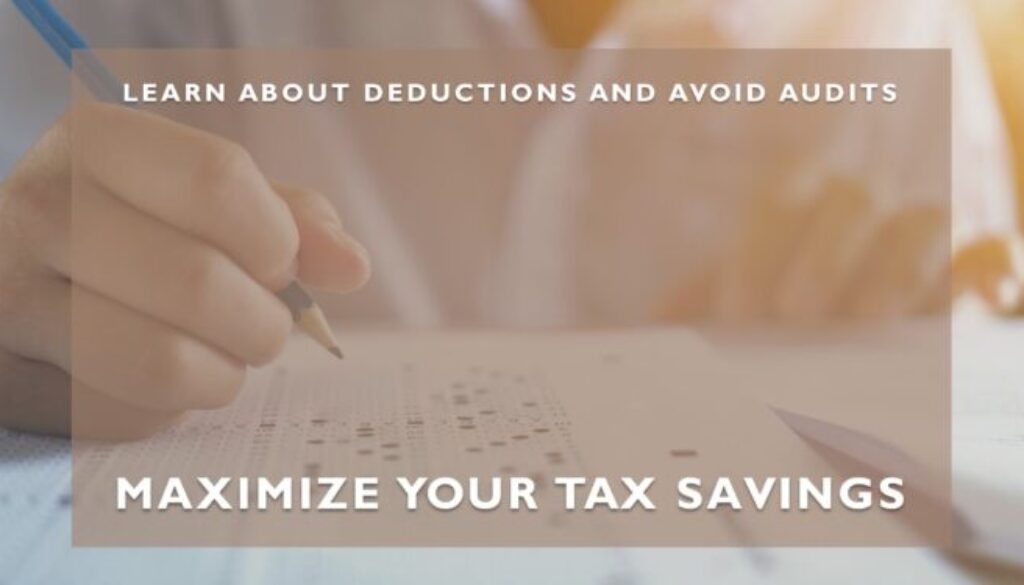10 Tax Deductions That Could Save You Money and Trigger an Audit
10 Tax Deductions That Could Trigger an Audit
Introduction Navigating the world of tax deductions can be tricky. While they can significantly reduce your tax liability, some deductions can also raise red flags with the IRS. Discover the top tax deductions that can save you money while navigating potential audit triggers.
Overview Tax deductions are expenses that you can subtract from your taxable income during the year but some deductions may raise red flags and increase your chances of being audited by the IRS.. These deductions can range from business expenses to charitable donations, and they can significantly reduce your tax liability. However, certain deductions can also increase your chances of an audit if they are unusually high or not commonly claimed. It’s crucial to understand which deductions can benefit you the most while staying mindful of potential audit triggers.
Need help filing your taxes?
Click here to Book an online appointment
What is a Tax Audit?
An IRS audit is a review of your tax return by the Internal Revenue Service (IRS) to verify the accuracy of the information you reported. The IRS uses a variety of factors to select tax returns for audit, including income level, deductions claimed, and inconsistencies in reporting.
The IRS uses various methods to select tax returns for audit, including:
- Related examinations of businesses or other individuals.
- Industry-specific audit techniques.
- Compliance projects, such as the National Research Program.
- Whistleblower tips.
- Information matching programs.
Understanding what triggers an audit can help you avoid common mistakes and ensure you’re taking advantage of legitimate tax savings opportunities.
- Product on sale
 Tax Preparation Service$70.00 – $100.00
Tax Preparation Service$70.00 – $100.00
Top 10 Tax Deductions That Can Trigger an Audit
- Unreported Income: Not reporting all of your income can lead to an audit. The IRS receives copies of all your 1099s and W-2s, so make sure to report all your income.
- Large Charitable Donations: If your charitable donations are disproportionately large compared to your income, it could raise a red flag.
- Cash-Based Business: If you run a cash-based business and make large cash transactions, it could lead to an audit.
- Frequent Losses on Schedule C: If you report losses on Schedule C too often, the IRS may question whether your business is actually a hobby.
- Deducting Entertainment Expenses: The IRS scrutinizes large deductions for meals and entertainment.
- Home Office Deduction: This deduction is often abused, so the IRS pays close attention to it.
- Rental Income and Deductions: If you own rental property, the IRS may scrutinize your return for rental income and related deductions.
- Business Vehicle Expenses: If you claim high vehicle expenses, the IRS may question whether the vehicle is used exclusively for business.
- Day Trading Activities: Large gains or losses from day trading can draw attention.
- Gambling Losses: Large gambling losses can also trigger an audit.
FAQs
Q1: Can I claim deductions for my freelance business? A1: Yes, legitimate business expenses for freelancers are deductible, but ensure expenses are ordinary and necessary for your business.
Q2: What should I do if I receive an audit notice? A2: Respond promptly, gather relevant documents, and consider seeking professional assistance to navigate the audit process effectively.
Q3: Are there deductions I should avoid to reduce audit risks? A3: Avoid excessive or questionable deductions, and ensure all deductions are supported by proper documentation to minimize audit risks.
Q4: How long should I keep tax records? A4: Keep tax records for at least three years, and longer for certain documents like property records and investment statements.
Q5: Can deductions vary based on my filing status? A5: Yes, deductions can vary based on factors such as filing status, income level, and specific circumstances, so consult with a tax professional for personalized advice.
Conclusion While tax deductions can save you money, it’s important to claim them correctly to avoid potential issues with the IRS. By understanding which deductions are most beneficial and maintaining accurate records, you can save money while minimizing audit risks. Always consult with a tax professional to ensure you’re in compliance with all IRS rules and regulations. Remember, an informed taxpayer is a confident taxpayer!
My Business Web Space may earn an Affiliate Commission if you purchase something through recommended links in this article.
Discover more from My Business Web Space
Subscribe to get the latest posts sent to your email.
